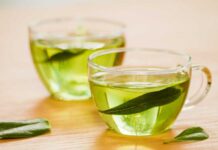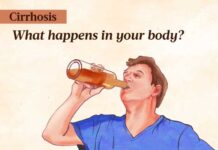And why it’s never a good idea to go to bed on an empty stomach.

Breakfast is always touted as the most important meal because it fuels the body for the day ahead. But going to bed with an empty stomach, or one that’s not nutritionally satiated, can be just as bad as skipping your morning smoothie. “Eating food is similar to putting gas in your car,” explains Maggie G. Lyon, R.D., C.D.N., a practitioner in residence of hospitality and tourism management at the University of New Haven. And you may not think of sleep as something that requires much gas, but it’s actually a time when many restorative processes take place, so eating foods that help you sleep can be the difference between waking up tired, or not.
“Nutrition plays an important role in your sleep cycle and sleep quality,” adds Courtney Coe, R.D.N., a registered dietitian at WellTheory. Below, she and Lyon share foods to fill up on before hitting the hay.
Cherries
A la the viral sleepy girl mocktail (and, you know, science), tart cherry juice provides “a natural source of melatonin, a hormone that regulates sleep-wake cycles,” says Coe. If you take melatonin in supplement form already, try switching to a glass of tart cherry juice and see if it helps you slip into slumber, she suggests.
Nuts And Seeds
“Nuts and seeds like almonds, cashews, and pumpkin seeds all contain magnesium,” says Coe. Magnesium is thought to benefit sleep by promoting muscle relaxation and therefore improving sleep quality. Nuts and seeds also contain healthy fats, Coe adds, which can keep blood sugar balanced throughout the night and prevent a wakeup call from a growling stomach. Pumpkin seeds also contain tryptophan, an amino acid that converts to serotonin, a feel-good neurotransmitter that imbues calmness, which is then converted into melatonin, promoting sleep, Lyon explains.
Turkey
You’re probably not surprised to see turkey on this list, as it gets blamed for Thanksgiving afternoon naps annually. It is true that the bird contains tryptophan, Lyon says, but not enough to knock you out on its own. The post-holiday meal slump, instead, can be attributed to the turkey eaten in combination with excess carbohydrate- and protein-rich foods, according to the National Sleep Foundation. At the very least, a plate of turkey at dinner may help you relax.
Dairy
A warm glass of milk may really help you sleep after all. Dairy also contains tryptophan, says Coe, which can increase serotonin levels in the brain and promote relaxation. Dairy also contains a type of protein, casein, that digests more slowly than others. “Casein protein provides a steady supply of amino acids over several hours, which can support muscle recovery and growth overnight,“ she adds. “This can help promote deep, consistent sleep by not allowing blood sugar levels to dip, which can impact sleep quality.”
Chamomile Tea
Chamomile contains apigenin, an antioxidant that binds to receptors in the brain, promoting sleepiness, says Coe. In one small study, chamomile extract was found to significantly improve the sleep quality of elderly people admitted to nursing homes.
Eggs
Eggs are high in tryptophan, explains Coe. Research shows that the protein-packed snack may also potentially boost mood and depressive symptoms, thanks to tryptophan’s relationship to serotonin.
Quinoa
There is research that says quinoa is nutritionally similar to milk—it has tryptophan and is high in protein. So, if you’re dairy-free or don’t really fancy drinking milk, a grain bowl for dinner may suffice, says Lyon.
Fish
Fish like tuna, mackerel, and salmon are high in omega-3s, an essential fatty acid that may support the conversion of tryptophan to serotonin, aiding in sleep, Coe says. One study also associated fatty fish with improved sleep quality in people over 40.
Dark Chocolate
Like fish, dark chocolate also contains omega-3 fatty acids, Coe says. When chocolate is consumed in the morning, its antioxidants, also known as flavonols, are also thought to support a balanced circadian rhythm, as well as other cardio-metabolic processes.
Foods To Avoid Before Bed
Although you definitely want to avoid going to bed hungry, there are a few foods that could disrupt your rest, or even keep you from falling asleep, including:
Caffeine And Alcohol
“Stimulants like caffeine can disrupt sleep patterns and make it harder to fall asleep,” says Coe. “While alcohol may make you feel sleepy initially, it can disrupt sleep in the later stages, leading to poor-quality sleep.”
Spicy And Acidic Foods
“Eating heavy, rich, spicy, or acidic foods before bed can cause discomfort such as heartburn, or acid reflux, which can interfere with sleep,” says Coe. “This is especially important if you are someone who struggles with acid reflux regularly.”
Imbalanced Or High-Sugar Meals
“Consuming imbalanced meals that lack protein and healthy fats. or foods and drinks high in sugar before bed can cause fluctuations in blood sugar levels,” explains Coe. This could keep you from falling asleep or crashing levels could wake you up.
Important Notice: This article was originally published at www.prevention.com by Kayla Blanton where all credits are due.
Disclaimer
The watching, interacting, and participation of any kind with anything on this page does not constitute or initiate a doctor-patient relationship with Dr. Farrah™. None of the statements here have been evaluated by the Food and Drug Administration (FDA). The products of Dr. Farrah™ are not intended to diagnose, treat, cure, or prevent any disease. The information being provided should only be considered for education and entertainment purposes only. If you feel that anything you see or hear may be of value to you on this page or on any other medium of any kind associated with, showing, or quoting anything relating to Dr. Farrah™ in any way at any time, you are encouraged to and agree to consult with a licensed healthcare professional in your area to discuss it. If you feel that you’re having a healthcare emergency, seek medical attention immediately. The views expressed here are simply either the views and opinions of Dr. Farrah™ or others appearing and are protected under the first amendment.
Dr. Farrah™ is a highly experienced Licensed Medical Doctor certified in evidence-based clinical nutrition, not some enthusiast, formulator, or medium promoting the wild and unrestrained use of nutrition products for health issues without clinical experience and scientific evidence of therapeutic benefit. Dr. Farrah™ has personally and keenly studied everything she recommends, and more importantly, she’s closely observed the reactions and results in a clinical setting countless times over the course of her career involving the treatment of over 150,000 patients.
Dr. Farrah™ promotes evidence-based natural approaches to health, which means integrating her individual scientific and clinical expertise with the best available external clinical evidence from systematic research. By individual clinical expertise, I refer to the proficiency and judgment that individual clinicians acquire through clinical experience and clinical practice.
Dr. Farrah™ does not make any representation or warranties with respect to the accuracy, applicability, fitness, or completeness of any multimedia content provided. Dr. Farrah™ does not warrant the performance, effectiveness, or applicability of any sites listed, linked, or referenced to, in, or by any multimedia content.
To be clear, the multimedia content is not intended to be a substitute for professional medical advice, diagnosis, or treatment. Always seek the advice of your physician or other qualified health providers with any questions you may have regarding a medical condition. Never disregard professional medical advice or delay in seeking it because of something you have read or seen in any website, video, image, or media of any kind. Dr. Farrah™ hereby disclaims any and all liability to any party for any direct, indirect, implied, punitive, special, incidental, or other consequential damages arising directly or indirectly from any use of the content, which is provided as is, and without warranties.








